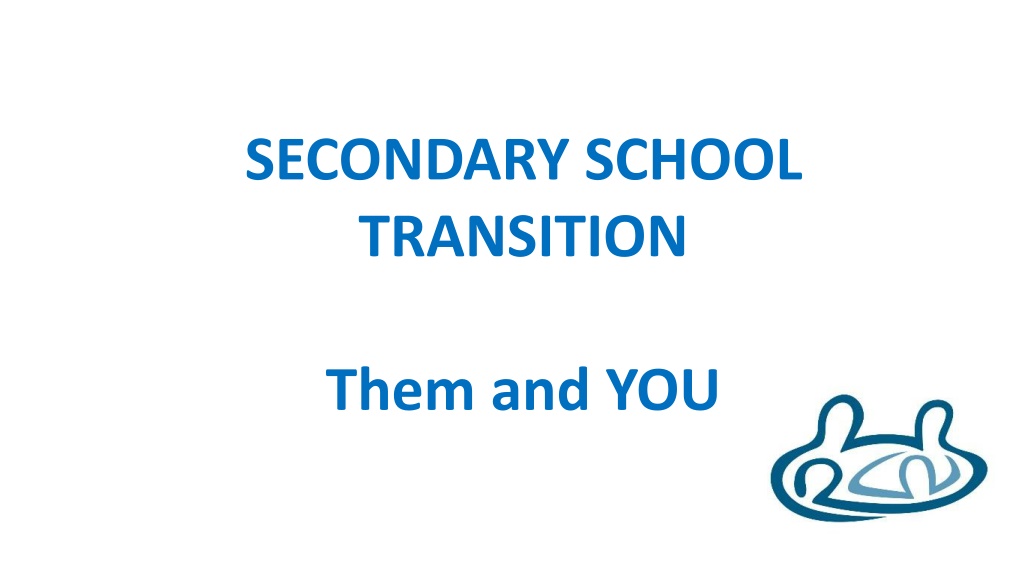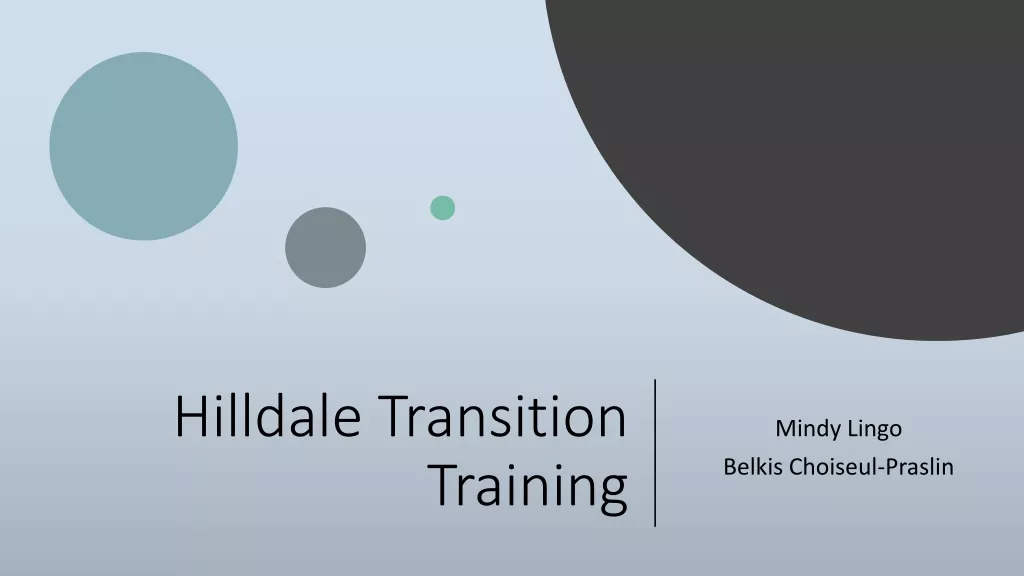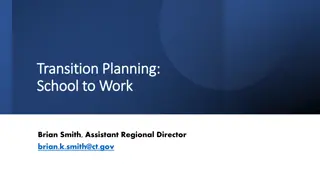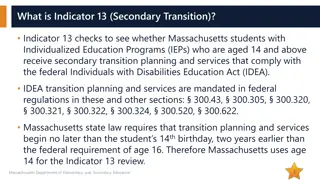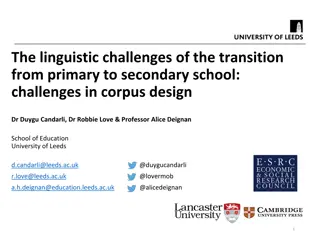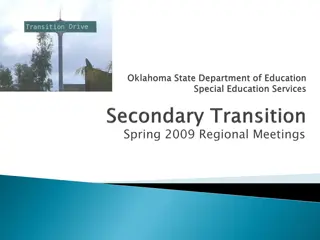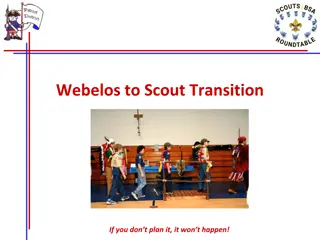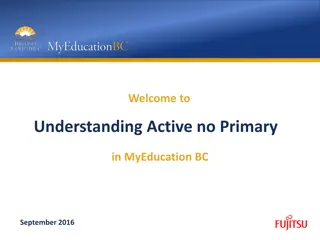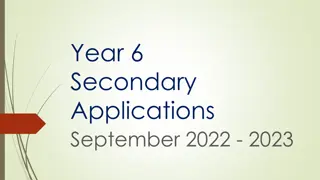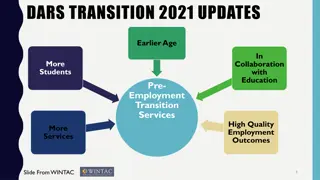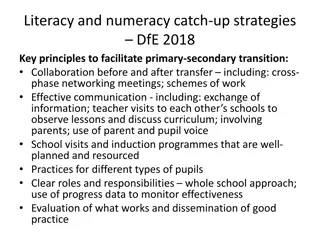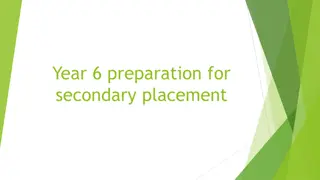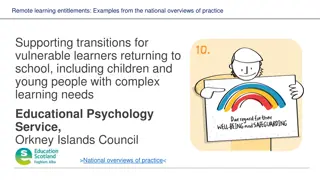Supporting a Smooth Transition to Secondary School
Encouraging inclusion, belonging, and positive self-perception is key to a successful transition to secondary school. Communication, familiarity with the new environment, promoting independence, and preparing for responsibilities are essential aspects to consider for a seamless adjustment. By addressing these factors, students can navigate the changes with confidence and ease.
Download Presentation

Please find below an Image/Link to download the presentation.
The content on the website is provided AS IS for your information and personal use only. It may not be sold, licensed, or shared on other websites without obtaining consent from the author.If you encounter any issues during the download, it is possible that the publisher has removed the file from their server.
You are allowed to download the files provided on this website for personal or commercial use, subject to the condition that they are used lawfully. All files are the property of their respective owners.
The content on the website is provided AS IS for your information and personal use only. It may not be sold, licensed, or shared on other websites without obtaining consent from the author.
E N D
Presentation Transcript
SECONDARY SCHOOL TRANSITION Them and YOU
Inclusion and belonging are crucial elements to a successful transition Students who are perceived as having made a successful transition to secondary school describe themselves, and are often described by others, as having friends and fitting into the school environment Sometimes pupils find it hard to believe positive things about themselves and for many, it is easier to believe the negative things Taking notice of successes, strengths, talents and interests will build their resilience, self-esteem and confidence Encourage them to use what they have achieved as a way of helping them cope with stress and adversity
Talk about it! The more you talk about the changes and how they feel, the more time they have to build strategies and it will feel normal. What do you remember, school or a new job? Talk about nerves, they must not suffer in silence, other people looking nervous may just be bravado. If they don t know who will they ask?
Get familiar with the new school Walk around, open days. Go more than once. Attend school productions and events at the school so they are used to going there. Get to know the school website. Down time When they start, factor in down time to adjust. Remember how exhausted they were when they started at 4 years old?
Independence- let it go! Do the school walk several times! The bus route the what if plan . Organisation Visual aids, timetables on the fridge, learn how to tie a tie in the holidays! Do they want a locker, do you need to provide the padlock? Have you got the correct equipment (bag, uniform, science calculator, geometry, stationary sets)?
Prepare for responsibility In the last half term of Year 6, get them ready by not checking and preparing PE kits, school bags, etc Introduce the habit of the night before. Are they money and budget savvy? What is the new school system? Friendships! Talk about making new friends and discuss when they last made new friends how they did it. Encourage them to make the first move, to smile. Look people in the eye and make your body language open. Be a magnet to people make the first move, ask Do you want lunch? or Shall we go to the tutor room?
Parents! Make a plan on the first day they go! The prime objectives are that your children are safe, happy and will develop both academically and socially. This may not happen immediately! As a parent, if you take every opportunity, such as attending open evenings, induction events you too can short-circuit some of your concerns. If you re relaxed, your child is more likely to be relaxed too Children are far more resilient and adaptable than parents give them credit for!
